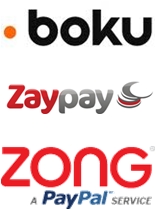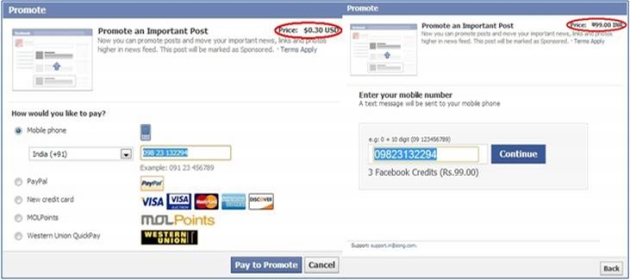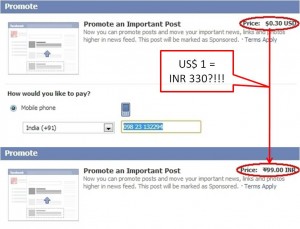In my op-ed article titled “Impact of Regulation on Financial Services Providers” published in the August 2012 issue of The Journal of Internet Banking & Commerce, I’d argued that banks don’t have much to fear from the slew of financial products launched by non-banking financial services providers.
Many career bankers averred that they heaved a sigh of relief after reading my article.

However, Karthi Marshan, who is Head Marketing, Kotak Mahindra Group, a midsized private sector financial services company in India, had a slightly different take.
He felt that telecom companies could pose a major threat to banks.
To paraphrase his email to me, “While regulation may well prevent them (TELCOs) from ever taking deposits, I think the day can come when they become significant payment aggregators, ergo, superb alternatives to credit & debit cards”. He went on to add, “The sheer convenience of paying just one bill a month for all my transactions, and being able to chuck all the plastic in my wallet, is a customer benefit that may nudge telcos into investing in acquiring merchants big time”.
At the onset of Gen Y Mobile Payments (GYMPs) in 2009, I’d felt the same. Boku and Zong, the poster children for the then new method of payment, enabled purchases to be billed directly to consumers’ mobile phone bills. This was truly disruptive since, unlike most other wannabe-disruptions that actually utilized ACH or card networks beneath the hood, the new “career billing” providers entirely bypassed banking rails.
Moreover, as I’d highlighted in GenY Mobile Payments Crack The Holy Grail Of Convenience Versus Security at the time, GYMPs seemed to have solved the conflict between convenience and security, a tightrope that banks have always had problems walking with their electronic payment offerings.
Therefore, it appeared that GYMPs were set to grab a major share of the retail payments market. It was indeed conceivable that, over time, telecom companies would acquire them and use their alternative payments rails to challenge the hegemony of banks in this lucrative space.
Fast forward to today. For more than one reason, the threat to banks from TELCOs (including MNOs) has receded considerably.
GYMPs continue to be extremely expensive. Although transaction fees for career billing are down from their peak rates of 30-40%, they’re still as high as 20%. As a result, GYMPs have barely made much headway beyond their traditional sweetspot of virtual goods.
In micropayments, often seen as a low hanging fruit for them, GYMPs are not helping themselves with their outrageous premiums.
I discovered this recently after posting an update on my Facebook Page. I got a pop-up message asking me if I wanted to promote it via FB’s Sponsored Post. I decided to give this new service a whirl and said yes. The price displayed at first was US$ 0.30 (which is around INR 15 @ US$ 1 = INR 50). However, when I opted to pay via mobile phone, the price shot up to INR 99, which translated to a whopping 560% premium.
Fat chance that merchants / cardholders, who complain so vehemently about the 2-4% interchange / surcharge slapped on them for credit card payments, are going to accept the kind of transaction fees / premium levied by carrier-billing payments, especially for big ticket items.
Perhaps realizing that they were stunting their growth by tying themselves down to TELCOs, Zong and a few more carrier billing products recently started accepting credit cards. In other words, to ensure their own survival, they’ve given up on their original charter to disintermediate banks and are now forced to embrace banking rails.
Lest anyone associate this fate exclusively with startups that are long on enthusiasm and short on resources, ISIS, the mobile wallet developed by Verizon, AT&T and other mega telecom corporations, abandoned its original plan of setting up an exclusive TELCO rail. Instead it has roped in BarclayCard and other banks into its network last year.
How the mighty have fallen!
Maybe this explains why there hasn’t been much M&A activity in this space. Even Zong wasn’t acquired by a TELCO but by PayPal, which runs on top of ACH and card rails.
As for TELCOs consolidating all my accounts with them into one master account and allowing me to pay only one bill at the end of the month, well, I don’t see it happening anytime soon. For ten years, I’ve been having two mobile phone contracts in my name with a leading global MNO. Not once has this company ever offered to link my two accounts into one and save me the hassles of making two separate bill payments every month. If a TELCO can’t consolidate its own accounts, I doubt if it can aggregate third-party accounts into its billing system.
Even assuming that TELCOs will eventually overcome all these challenges, they’d need to partner with merchants, payment processors and other participants in the retail payments ecosystem to be able to process payments from end to end.
On this count, I can say from personal experience that it can be very frustrating to strike partnerships with MNOs. In a recent case, we approached a leading MNO with a proposal to cocreate a platform for targeted advertising to the MNO’s customer base. The MNO’s senior management flatly refused to entertain our proposal on the grounds that their C-Suite was totally against monetizing their customer data. We dropped the idea.
But, a few weeks later, an unknown startup made a big splash in the papers announcing a deal for targeted ads with the same holier-than-thou MNO!
According to Finextra, it looks like even banks are having trouble getting TELCOs to the discussion table. Some, like Bankinter, are finding ways to forge ahead on their own. This Spanish bank recently devised a highly innovative architecture that let it launch its mobile payments product without having “to strike deals with telcos…”.
Forget about fearing them, savvy banks will simply bypass TELCOs to maintain their leadership in financial services.
UPDATE DATED 15 JULY 2020:
It’s seven years since the above post was published. My predictions have come true.
ISIS has shut down. The average consumer / payor hasn’t heard about Boku, Zong.
I now have three mobile phone connections with the aforementioned MNO. I get three bills. And I have to make three payments.

